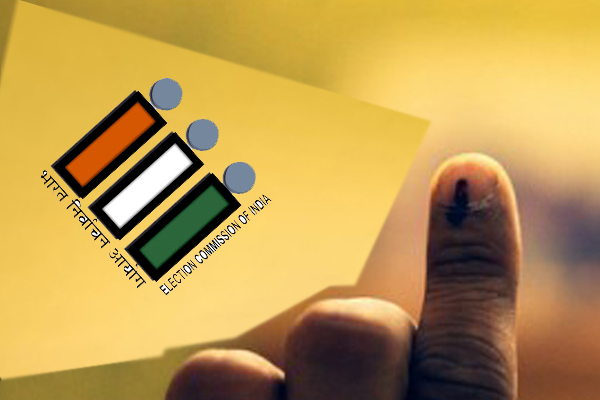
Permanent representatives to the UN from 11 countries visit Election Commission of India
New Delhi, Feb 6 (IBNS) : A delegation of Permanent Representatives to the United Nations from eleven countries, namely, Cabo Verde, St. Vincent & Grenada, Togo, Moldova, Gambia, Burkina Faso, Tonga, Samoa, Micronesia, Solomon Islands and Vanuatu visited the Election Commission of India.
The delegation is visiting India from February 4 to 10 under the sponsorship of the Ministry of External Affairs, Government of India. The delegation met the Chief Election Commissioner, O.P.Rawat; Sunil Arora, Election Commissioner and Ashok Lavasa, Election Commissioner.
Chief Election Commissioner of India, O.P.Rawat, in his address, mentioned that strong participatory and inclusive democracies are necessary to ensure good governance and empowerment of all its citizens. He gave an overview of the election process in India and briefed the visiting delegates about the innovations and initiatives introduced by the ECI in managing the elections. He mentioned that ECI has been transforming its processes and making regular changes in the election management to meet and align with the emerging challenges.
Referring to the ECI’s initiative ‘No Voter to Be Left Behind’ with a view to optimize the enrolment of voters, he briefed the delegates about this year’s theme ‘Accessible Elections’ and the International Conference on ‘Inclusion of Persons with Disabilities in the Election Process’ hosted by the ECI on Jan 24, 2018.
Sunil Arora, Election Commissioner referred to the far-sightedness of the members of the Constituent Assembly of India as reflected in the Preamble of the Constitution of India. He stated that that their vision was translated into reality when Election Commission of India was established under Article 324 of the Constitution of India. He briefed the visiting delegates about the innovations and initiatives introduced by the ECI in managing the elections including the use of Electronic Voting Machines (EVMs) and the introduction of Voter Verifiable Paper Audit Trail (VVPAT) as well as other IT-enabled services in the election management.
On ECI’s active international outreach programme, he mentioned that ECI’s contacts with Election Management Bodies abroad have been expanding and ECI has been sharing best practices, experience and innovations with other countries for mutual benefit.
Ashok Lavasa, Election Commissioner in his address stated that the one of the most important development of the century is the evolution of the United Nations system, which provides a platform for various nation states to share issues of common concern in the world and come to a common understanding on important issues. Democracy has now emerged as the best means to the public for an equitable participation in the political process and it is finding its place in different countries. He mentioned that ECI has taken several steps to spread the progress of democracy in a cost-effective manner.
Earlier, welcoming the delegates to the ECI, Umesh Sinha, Sr. Deputy Election Commissioner, ECI briefed the delegates about the election process in India and the international cooperation programme of the ECI. He gave a presentation about the structure, role and work of ECI in managing the largest election exercise in the world. A short film on Parliamentary Election-2014 was also screened for the delegation. This was followed by a Question and Answer session wherein queries from the delegates relating to gender equality, appointment of CEC/EC, voting by Indian diaspora etc. were answered.
The briefing session was also attended by DhirendraOjha, Director General; S. K. Mendiratta, Legal Advisor (ECI) and other senior officials of Election Commission of India.
Support Our Journalism
We cannot do without you.. your contribution supports unbiased journalism
IBNS is not driven by any ism- not wokeism, not racism, not skewed secularism, not hyper right-wing or left liberal ideals, nor by any hardline religious beliefs or hyper nationalism. We want to serve you good old objective news, as they are. We do not judge or preach. We let people decide for themselves. We only try to present factual and well-sourced news.







